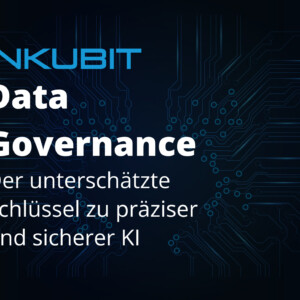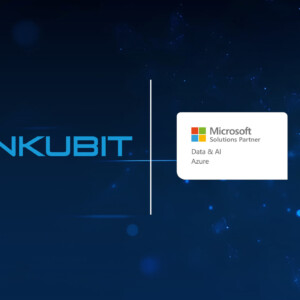One thing is clear in our Recruiting Trends 2024: this year, HR will become more important as it contributes to improving company culture or governance. We see some fundamental changes contributing to this transformation and thus fueling the defining trends in HR management.
On the one hand, it can be observed that HR is realigning its priorities to reflect the changing needs of the modern workforce. Secondly, HR's working methods are changing with a focus on adding value for internal customers. Finally, HR stands for meaningful change in the world of work. These changes will set HR on an exciting journey with opportunities, challenges and promises of a future where human resources take center stage to improve the quality of work for all.
The recruiting trends 2024
Resolving the productivity paradox
With significant economic change, disruption and technological advancement over the last 20 years, productivity has always been at the top of the HR agenda. While employee engagement, employee experience and wellbeing measures have led to the highest levels of job satisfaction in the US over the last 36 years, in most cases this has not had an impact on employee productivity.
Productivity growth in the UK and the eurozone is the lowest in 17 years, while it is better in the US. The increase in productivity is mainly due to more efficient production processes.
The small increases in productivity are mainly due to more efficient production processes. Employee productivity has not changed since the 2008 financial crisis, which gives HR managers the opportunity to find solutions.
Our Recruiting Trends 2024 advise HR to take a more holistic view of productivity and focus on eliminating bottlenecks, formulating strategies to increase productivity and rewarding productivity-enhancing behaviors.
Furthermore, HR should learn to better evaluate actual performance by setting more reasonable goals, tracking results and promoting proven productivity tools.
[/vc_column_text]
Utilization of the hidden workforce
At a time of historically low unemployment, when companies are increasingly desperate for talent, we expect HR to invest in a workforce that has often been ignored: the hidden workforce.
The hidden workforce, also known as the "forgotten workforce," includes 14 to 17% of workers in the U.S., including retirees who want to work, caregivers, people with neurological disorders, people with chronic health conditions (including long-term patients), former prisoners, and people without degrees.
They are either already employed but want to work more (and are often paid as "hourly workers"), or they are not yet employed but are willing to work in a suitable environment. The largest selection of jobs can be found on Jooble, where the latest vacancies in Stuttgart are posted. After all, we believe that 2024 is the year when these workers will no longer be forgotten.
The point of no return for DEIB
2024 is the year of redefining Diversity, Equity, Inclusion and Belonging (DEIB). Three major changes have brought us to this point. The first is the Supreme Court's ruling overturning race-based decisions in college admissions (also known as affirmative action). Republican attorneys general have warned Fortune 100 CEOs that the ruling will apply to private companies as well.
At the same time, dissatisfaction with DEIB departments is growing. Companies like Amazon, Twitter and Lyft have laid off DEI specialists, and the number of DEI positions in 2022 is down 19% year-over-year. Revelio Labs looked at layoffs from more than 600 companies and found that the layoff rate for DEIB positions was 33% at the end of 2022, compared to 21% for non-DEIB positions. The result: a new approach to diversity.
As we have seen above, the business case for diversity is complex. Organizations that pay lip service to diversity have been publicly criticized for misleading.Social impact aside, employees want to work for companies that speak out on DEIB issues. 1 Those who ignore the proverbial "elephant in the room" will struggle to attract, engage and retain talent, according to Recruiting Trends 2024.
As a result, we assume that companies will change their attitude towards DEIB in 2024.
HR as a force for good - The biggest recruiting trends 2024?
With the U.S. labor market being the tightest since World War II, HR departments will take a leadership role in driving transformative change that benefits both their organizations and their employees.^ Therefore, it can be predicted that HR will be at the forefront of positive change in 2024
One such change is generative artificial intelligence. It increases productivity and business performance, but also promises to impact the meaning we associate with our work. Not all work can have the same level of meaning for its owner, but we need to work towards ensuring that work is not completely meaningless.
This change offers HR a unique opportunity to improve business results through better people practices.
We see a shift here from competing in a crowded external talent market to internal markets that emphasize career development and advancement. Companies will continue to attract talent by offering a variety of options for the work and living conditions employees are looking for. To choose the right job in Cologne from a large list, you can browse Jooble, where current opportunities in Germany are posted.
All of this promises a hopeful vision for 2024, where HR drives business results through smarter HR and becomes a catalyst for critical change in the workplace.

From silos to solutions: Bringing together key capabilities that make a difference
As HR becomes increasingly value- and business-driven, every HR professional needs to know how and where they can add value to the business. Business partnering will become relevant for all HR professionals, not just the few who hold the title.
The same applies to data literacy. The ability to develop hypotheses, define key performance indicators, read and interpret data and communicate data stories will be critical and go far beyond HR analytics functions. HR professionals will need to utilize data literacy as a foundational skill for effective decision making and strategic contributions.
Conclusion
With the Recruiting Trends 2024, we expect more experimentation and bold solutions as part of all the changes. HR teams will increasingly use project-based methods and consciously combine different skills to find answers to today's business challenges. We also hope to solve the productivity paradox and address the hidden workforce.







